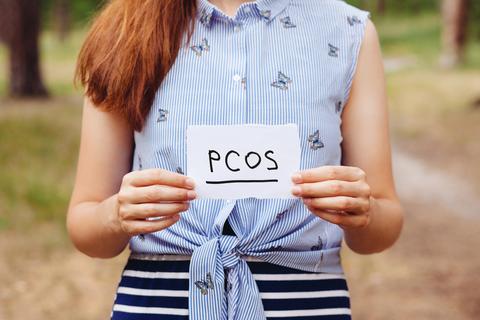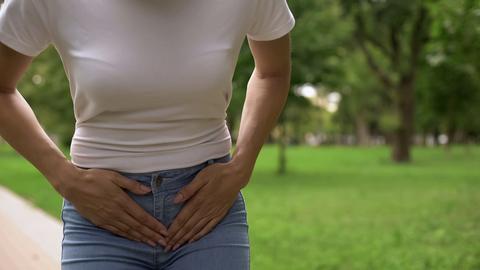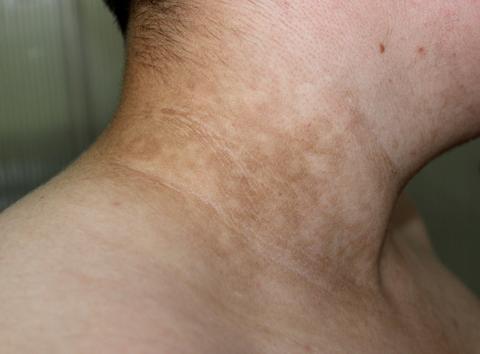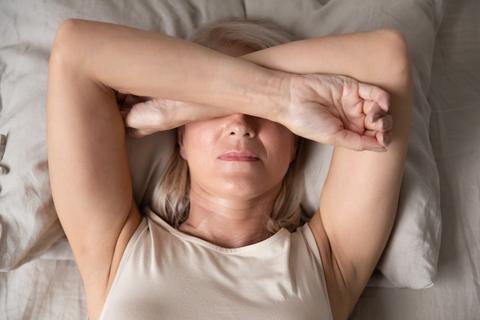
What Is Polycystic Ovarian Syndrome (PCOS) and How Does It Affect Body Odor?
by Ashley Cummings
It’s no secret that female bodies go through some serious changes throughout our lives. If you’re prone to (seemingly random) mood swings, acne outbursts, increases in body odor, and other unpleasantries, you’re not alone. There’s also a strong chance you have fluctuations in hormones to thank. (Thanks, hormones.)
As soon as women hit puberty and up through menopause (AKA “the reproductive age”), our bodies produce more estrogen and progesterone. These hormones help regulate various changes and cycles in the body (e.g., the growth of breasts, increased body hair, menstrual cycles, etc.).
While estrogen and progesterone are essential for healthy sexual and reproductive development, they can also be the cause of pain and discomfort during the monthly visit from Aunt Flow, during pregnancy, and throughout menopause, to name a few.
Mild to moderate symptoms of cramping, bloating, muscle aches, acne, joint pain, weight gain, weight loss, mood swings, body odor, and night sweats are 100% natural and normal.
But what about when you’re experiencing symptoms that don’t seem normal? There are several diseases and disorders that can come with extremely high levels of hormones and hormonal imbalances. One hormonal disorder some women of reproductive age experience is Polycystic Ovarian Syndrome (PCOS), which is sometimes referred to as Polycystic Ovarian Syndrome.

In this article, we’ll cover:
- What PCOS is and why it’s a problem
- Symptoms of PCOS
- Why PCOS can increase body odor
- What women with PCOS can do about increases in body odor
Let’s get into it, shall we?
What Is PCOS and Why Is it a Problem?
Polycystic ovarian syndrome (PCOS) is a hormonal disorder that women of childbearing ages can experience. Researchers estimate that 5-10% of teens and 27% of women are affected by this disease, but one study indicates that up to 70% of women with PCOS remain undiagnosed.
PCOS is a disorder that leads to cysts on the ovaries. The cysts are follicles containing an immature egg that doesn’t go through the ovulation cycle. When the immature eggs don’t ovulate, it disrupts the hormones (specifically estrogen, progesterone, follicle-stimulating hormone, and luteinizing hormone) and can also cause a spike in androgen levels.
The main problem with PCOS is that, while doctors and scientists understand the symptoms, they don’t yet know what causes this disorder. However, excess insulin, low-grade inflammation, too much androgen, and a family history of PCOS can play a role. Additionally, doctors don’t have a specific and reliable way to test for PCOS.

PSOC is also problematic because it can cause a series of complications, including the following:
- Difficulty getting pregnant
- Gestational diabetes
- High blood pressure during pregnancy
- Miscarriages
- Endometrial cancer
- Severe liver inflammation
- Metabolic syndrome
- Type 2 diabetes or prediabetes
- Cholesterol abnormalities
- Sleep apnea
- Depression, anxiety, and eating disorders
- Abnormal uterine bleeding
In addition to potential health risks, PCOS comes with several uncomfortable symptoms. Let’s talk about them.
9 symptoms of PCOS
If you are experiencing a mix of any of the following 9 symptoms of PCOS, or if PCOS runs in your family, you may want to consult a doctor.
1. Irregular Periods
Since PCOS is a hormonal disorder involving estrogen and progesterone, it can lead to irregular periods. If you are experiencing either extremely heavy and prolonged periods or infrequent periods with a light flow, then you could be at risk of PCOS.
2. Acne
Acne is a symptom of several different disorders, can come from a lack of a proper facial care, and can increase with stress. However, hormone imbalances are also a huge cause of acne. If you experience outbreaks of acne, especially on your back, along with these other symptoms, it could be a sign of PCOS.
3. Hirsutism
Don’t worry. I’d never heard the word "hirsutism" either until researching this article. It’s just fancy talk for extra or unwanted hair on the face or other body parts. Hirsutism is typically a result of excess male hormones.
4. Hair Loss
Not only can PCOS cause hair growth in unwanted places, it can also thin out the hair on your head.
5. Infertility
If your menstrual cycles are irregular and you’re having problems getting pregnant, you’ll want to talk to your doctor. Doctors will look for PCOS and possible solutions in cases of infertility.
6. Mental Health Issues
Depression and anxiety are symptoms of many diseases and disorders, but can also come with PCOS. If you are experiencing several of these symptoms as well as depression or anxiety, contact your doctor right away.
7. Weight Problems
Hormones play a massive role in your metabolism, which affects your ability to burn calories and lose weight. Estrogen and progesterone, in particular, play a role in how your body burns fat, and whether your body will burn fat or sugar.
If you are having a difficult time losing weight in general, or around your belly area, schedule a checkup with your OB/GYN.
8. Acanthosis Nigricans
Acanthosis nigricans are patches of dark skin, especially on the back of the neck, and are a symptom of PCOS.

9. Body Odor
During certain times of the month, people with PCOS may experience an increase in body odor. This is especially true if you have gained weight due to PCOS.
People with PCOS will not necessarily experience every single one of these symptoms (although that is possible). If you are experiencing a handful of these symptoms, then visit your OB/GYN to either rule out or get a proper PCOS diagnosis.
Why PCOS can cause a spike in body odor?
We’ve already talked about how PCOS is a hormonal imbalance among women in their reproductive years, but we haven’t talked about why hormonal imbalances from PCOS can contribute to more intense B.O.
The first reason is that estrogen has a distinct smell. This is also why women experience more body odor while they are on their period. More estrogen means a stronger...well...estrogen smell.
Additionally, when estrogen levels fluctuate, it affects a woman’s sensitivity to heat. Hello, hot flashes! When a woman’s body doesn’t control temperature properly, it increases how much and how often she sweats.
And, anytime sweat (or any bodily fluid, for that matter) mixes with bacteria found under the arms, between the legs, and other private parts of the body, it translates to more B.O.
Related Story: Day to Day Body Odors
The production of sweat coming from the apocrine glands (where more odor-causing bacteria are present) in women is also more abundant during hormonal fluctuations. This is why women may sweat and smell more during their period, menopause, and if they have been diagnosed with a hormonal disorder like Polycystic Ovarian Syndrome.

But, boosts in estrogen and more sweat from apocrine glands mixed with bacteria aren’t the only body odor culprits in PCOS.
PCOS, unfortunately, also has a bad reputation for causing weight gain. When we gain excess weight, we both sweat more and have more folds where sweat can get trapped. This can lead to a more pungent body odor.
How women with PCOS can control unpleasant body odor?
If you have been diagnosed with Polycystic Ovarian Syndrome and have noticed an increase in body odor, don’t fear.
A skin loving, doctor developed deodorant that helps control odor for up to 72 hours anywhere on your body can offer you a lot of peace of mind.
It’s also so important when treating odor from PCOS to find a deodorant that actually addresses body odor’s true source—the “smelly” skin bacteria that mixes with sweat. The bacteria is the same in your armpits, between your legs, in your tummy folds, and every other place that gets stinky. You are going to want something that will go beyond just covering up bad smells with fragrances that only add to the issue.
The good news is, this tube of Lavender Sage is the first deodorant that can be used anywhere externally, and it actually zeroes in on odor using real, effective science!
If you are experiencing symptoms of PCOS, don’t be afraid to visit your doctor. Your OB/GYN will guide you through the process and help you get the answers you need.
Stay strong, don’t give up, and know there is help!
Recent Articles
- Your New Indulgence: Introducing Vanilla Bliss
April 04, 2025
- Feminine Hygiene Myths: A Tale As Old As Time
March 24, 2025
- Do Showers Control Body Odor?
March 18, 2025
- The Skin Loving Benefits of Mandelic Acid
February 28, 2025
- Why Is Acid In My Deodorant?
February 28, 2025
- What Are AHAs?
February 28, 2025
- 3 Helpful Tips For Getting Started
February 28, 2025
- Unlocking Smoother Looking Skin: Lume's Guide to Managing KP
January 29, 2025
- Drier Days Are In Your Pits’ Future!
January 15, 2025
- This Spray Slays
January 10, 2025
















